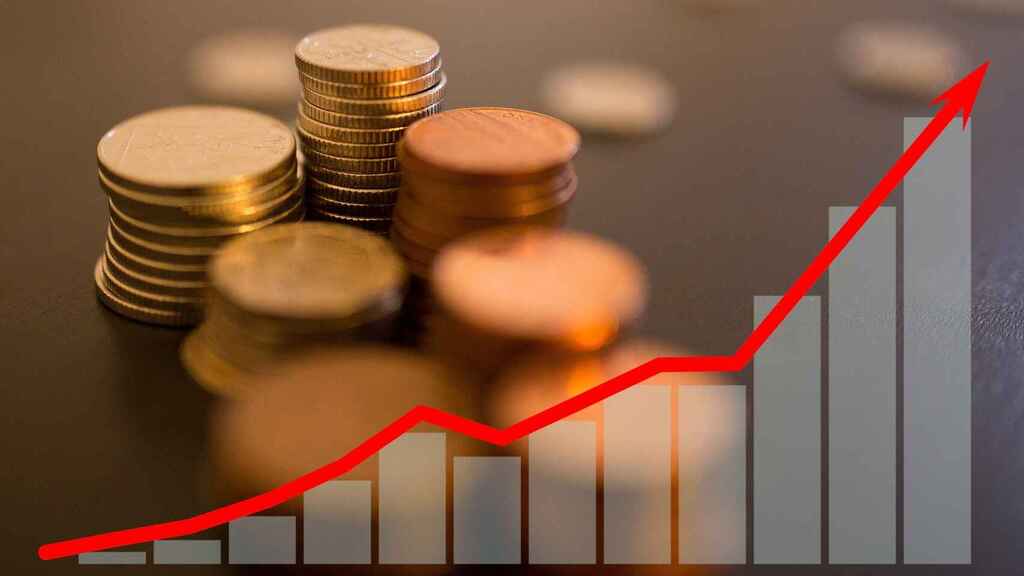Could inflation benefit some people?
1:03
(CNN Business) -
There is no denying it: inflation is here.
Consumer prices increased 7% over the past year.
House prices have also continued to rise.
But the question on the minds of many Wall Street economists and strategists is whether something even worse could be on the cards: Prices are rising as the economy slows.
That's the textbook definition of stagflation, and it would be the worst nightmare for consumers, investors, and the Federal Reserve, the Fed.
Not to mention President Joe Biden and the rest of the Democratic leadership in Washington.
Just ask former President Jimmy Carter, who lost to Ronald Reagan in his 1980 re-election bid as the economy suffered from rising gasoline prices.
Stagflation is a difficult problem to overcome, especially for central bankers at the Fed and around the world.
There are few tools to combat inflation and the slowdown at the same time.
The strongest solution to an economic downturn is to lower interest rates, but they have been close to zero for almost two years.
Raising rates to fight inflation, as the Fed pointed out it could do soon, could slow the economy.
That's a big concern right now in the UK, where central bankers raised rates last month to combat higher prices.
Rate hikes also tend to put more pressure on long-term bond yields, which have already risen in anticipation of the Fed's actions. These tend to be partly inflationary because they make it more expensive to borrow money.
advertising
Immigrants could ease US inflation 0:39
The good news is that the economy continues to grow at a healthy rate as it recovers from the pandemic recession.
Consumers keep spending.
And even if the Fed begins to raise interest rates, it is unlikely to do so at such a rapid rate or scale that it does too much damage to the economy in the short term.
"There is enough stimulus in the system not to worry about the 'fired' part of this equation for many quarters to come," Jim Reid, global director of thematic research at Deutsche Bank, said in a report last week.
The price increase, an economic setback or a nightmare?
However, growth slowed in the third quarter, which did sound some red flags.
The market expects the economy to recover in the fourth quarter and to continue to do so until 2022.
Still, lingering supply chain concerns and increasing cases of the omicron variant of covid-19 could ruin hopes for a recovery.
That increases the chances that the Fed could misjudge the timing and tighten policy too aggressively if it begins to worry about the price stability (inflation) part of its dual mandate rather than the maximum employment (jobs) part.
"There is always the risk of a policy error. The Fed carries a nuclear monetary policy ball with it, so there is the possibility of a mistake," said Kristina Hooper, chief global market strategist at Invesco.
That said, Hooper isn't overly concerned that Fed Chairman Jerome Powell is about to make a big monetary mistake.
Inflation: everything you need to know about this economic phenomenon
"You always want to be on the lookout for something like stagflation, but we don't have high unemployment right now and economic growth is above trend," he added.
"Are we at risk of stagflation in an environment of rising rates? Yes, but it is unlikely."
The Fed is in uncharted territory.
Central bankers have had to deal with many crises in recent decades, but there is no modern playbook on how to handle the threat of runaway inflation after a global pandemic.
"The Fed's monetary policy framework is essentially being tested in real time," said John Leer, chief economist at Morning Consult, a data intelligence firm.
"There is not much guidance."
Spending remains strong despite inflation
At this point, it appears that the price hike is more of a source of consumer complaints and alarmist headlines and not, thus far, a serious economic concern.
That's why experts say investors need to be vigilant and see if consumers actually cut their spending due to inflation.
That's when would be the time to worry about stagflation.
"Consumers can get to a point where they won't pay higher prices and that will destroy demand. We're not there yet," said Mike Skordeles, US macro-strategist at Truist Financial.
"Stagflation could be a concern if higher prices persist for an extended period."
Skordeles also believes that stagflation concerns are "out of place" at the moment because growth is still relatively strong and the market has confidence in the Fed.
So as long as retail sales remain strong, it can be argued that while buyers aren't laughing at inflation, they are bearing it for now.
Inflation

